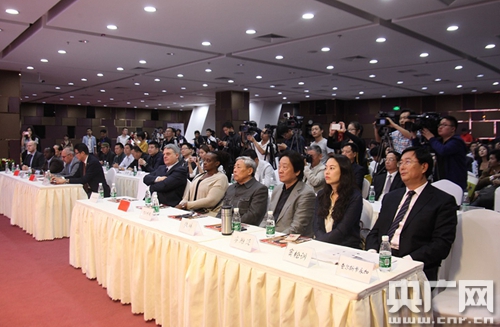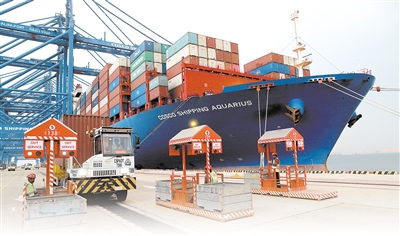"Pseudo-growth" Fostered By Stock Speculation: The Main Business Of The Seven Wolves Has Long Been "hollowed Out"
"Pseudo-growth" Fostered By Stock Speculation: The Main Business Of The Seven Wolves Has Long Been "hollowed Out"
The advertising slogan "There is more than one side to a man" once made Septwolves a national symbol of men's clothing, but now the brand's "other side" is full of danger. Behind the net profit of 160 million yuan in the first half of 2025 is the main business profit of less than 30 million yuan and 1
The advertising slogan "There is more than one side to a man" once made Septwolves a national symbol of men's clothing, but now the brand's "other side" is full of danger. Behind the net profit of 160 million yuan in the first half of 2025 is less than 30 million yuan in main business profits and 130 million yuan in stock speculation gains. The clothing business has become a "foil" for investment income. This "industry investment" transformation spanning ten years has long deviated from its original intention.
Septwolves’ investment journey began in 2015 during the A-share craze. At that time, the company diverted 1 billion yuan of funds originally planned for online marketing to the investment market, officially launching the "stock-raising" model. From its early bets on coal companies and liquor stocks, to its pursuit of star stocks such as CATL and Tencent Holdings in recent years, its stock holdings of 1.44 billion yuan are spread across A-share Hong Kong stocks. The venture capital section on its official website keeps up with hot topics such as chips and AI, making it look like a professional investment institution.
However, the expansion of investment territory can never cover up the continued decline of the main business. After the peak of net profit of 561 million yuan in 2012, Septwolves' revenue has stagnated in the range of 3 billion to 3.5 billion yuan for eight years. In the first half of 2025, revenue of 1.375 billion yuan dropped another 5.93% year-on-year. Behind the 61.53% year-on-year drop in non-net profit is the overall failure of the clothing business: the return rates of the three major platforms of Tmall, Douyin, and Vipshop are close to or exceeding 50%. 1.189 billion yuan of inventory goods occupy funds. The inventory turnover days have lengthened from 197 days in 2022 to 220 days, and the pressure on capital accumulation is increasing day by day.
What is even more worrying is the continued weakening of core competitiveness. As a brand that once established itself as a "jacket expert", Septwolves' R&D expenses in the first half of 2025 were only 19.1055 million yuan, a sharp decrease of 41.98% year-on-year. The R&D rate of 1.39% is not only lower than the 2.1% of Santa Claus, but also shows a downward trend year by year. In the men's clothing industry, where fabric technology and pattern innovation determine market position, such frugal R&D investment is tantamount to a waste of martial arts.
In stark contrast to the stingy investment in R&D, there is the "extensiveness" of sales expenses. In the first half of the year, sales expenses of 546 million yuan increased by 16.68% year-on-year, accounting for nearly 40% of revenue, far exceeding the 32.7% of Baoxiniao and 24.3% of Heilan Home in the same period. High marketing investment did not save performance, but highlighted the abnormal development model of "emphasis on publicity and light on R&D".
The successive setbacks in transformation attempts have made it more difficult for the Seven Wolves to get rid of their dependence on investment income. The international affordable luxury brand "Karl" has been operating for many years. Not only does it have negative net assets, but its high debt of 707 million yuan has become a drag. Its revenue of 188 million yuan is a drop in the bucket for the main brand. The "Jacket Expert" focus strategy restarted in 2025 has not yet taken effect, and channel reform is in a dilemma: the increase of 45 directly operated stores has brought high costs, and the reduction of 131 franchise stores has led to the loss of market share. Franchise sales revenue has plummeted 28.77% year-on-year, and online business has also declined by 5.27%.
The loss of the Seven Wolves is not an isolated case, but a microcosm of the collective plight of the men's clothing industry. Jiumuwang’s net profit in the first half of 2025 is expected to increase by 200% to 260%. The core driving force is the fair value change income of 130 million yuan. Its investment income in the past four years has accumulated nearly 400 million yuan; the founder of Youngor bluntly said that "the money earned from investment is more than can be earned in 30 years of making clothing." Real estate and investment business have long overshadowed the main business of clothing. These brands are trapped in the vicious cycle of "weak industry - investment to make up for losses - less focus on the main business", treating short-term gains as life-saving straw.
But capital markets never win. Jiumuwang was still able to earn an investment income of 81.33 million yuan in 2021. In 2022, it fell into its first loss on the market due to a stock fund loss of more than 120 million yuan; Youngor also experienced a huge shock in the investment market, and finally lamented that "the money earned from selling clothes is more stable." For Septwolves, although the 130 million yuan in stock trading profits can whitewash the semi-annual report, it cannot solve the fundamental problems of brand aging and product disconnection. Once the market turns, there will be no way to fill the performance gap.
Brand expert Yang Dayun said frankly that companies have no choice but to "speculate in stocks to support their families", but this short-sighted behavior of "preventing the report from being too ugly" will ultimately be unsustainable. Analysts from Soochow Securities said that "making clothing and investing are equally risky," but the risks of the former can be resolved through R&D upgrades and product iterations, while the fluctuations of the latter are beyond the control of the company. Placing survival hopes on the stock market is essentially an evasion of the responsibilities of the main business.
From "jacket expert" to "big stock speculator", the ten-year transformation of the Seven Wolves reflects the confusion of the traditional manufacturing industry in the transformation period. Investment income may be able to exchange for good-looking short-term statements, but it cannot exchange for consumer recognition and improvement of long-term competitiveness. Just as Youngor finally returns to its understanding of industry, the foundation of clothing companies ultimately lies in the quality of stitches and innovations that meet needs.
When the bubble of profit from stock trading fades, if the Seven Wolves have not yet laid a solid foundation for their main business, what awaits them will not only be a decline in performance, but also a complete abandonment by the market. This dangerous game in the name of "investment" is destined to fail to be a good way for enterprises to survive.





